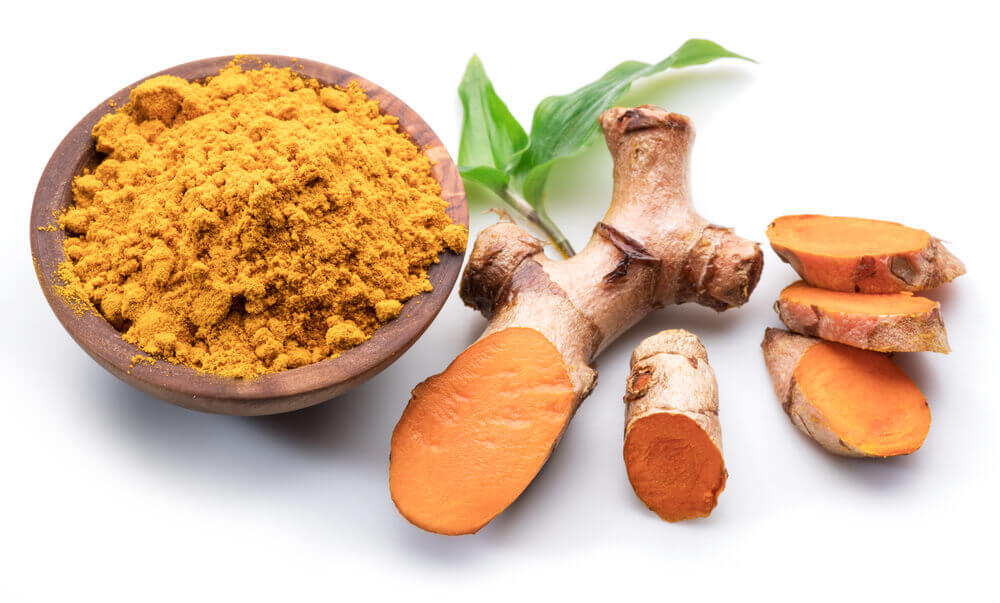It’s become common for certain foods, beverages and even herbs and spices to be touted as ‘superfoods’ for humans, and in recent years, turmeric has become one of them. Unlike many of the other ‘superfoods’ many believe that the benefits of turmeric are as applicable to dogs as they are to humans.
But what is so great about turmeric for dogs, and what does something called “golden paste for dogs” have to do with all of this? This, and other turmeric for dogs health-related issues, are what we are going to take a closer look at here.
What is Golden Paste for Dogs?
The name golden paste sounds like a trendy dog toothpaste, but it is actually the term that various sectors of the media have given to a mixture of turmeric, pepper and various ‘carrier’ oils like coconut oil.
This paste is designed to be fed to dogs (and humans if they really wanted to try it) as an effective way for them to reap the health benefits it’s claimed are offered by consuming turmeric on a regular basis.
What is Turmeric?

Turmeric (haldi), a rhizome of Curcuma longa, is a flavourful yellow-orange spice looks similar to a ginger root plant.
Turmeric has been utilized in Ayurveda and other traditional Indian medical systems, as well as Eastern Asian medical systems like traditional Chinese medicine, for centuries. It was traditionally used in India for skin, upper respiratory tract, joint, and digestive system diseases. You may also know it as a major component in Asian cuisine, especially in curries.
Turmeric is now suggested by some as a dietary supplement for humans for a wide range of ailments. It’s claimed it can have all kinds of health benefits, which we will discuss in a moment, and that these benefits can extend to your pup as well.
As is the case for almost all dietary supplements, while there is a growing body of scientific research that seems to back up the claims made by ‘golden paste’ advocates, the use of a turmeric supplement as a treatment for anything is not approved by the NIH or FDA. However, there are many who claim that golden paste has worked wonders for them and for their dogs.
Turmeric and Bioavailability
When used in cooking, most cooks use a powder form of turmeric, one which is little more than the stem of the plant that has been boiled, dried and then ground into a fine powder. This nontoxic powder has a very bright orange color. So bright in fact that turmeric powder can be used as a natural fabric dye as well which some people use to revive old clothes.
One of the difficulties of taking turmeric as an effective health supplement is its limited bioavailability. This means, in simple terms, that it is harder for the body to absorb properly in its standard powder form. Mixing it with a carrier oil, most commonly coconut oil or bromelain, makes it easier for the body to absorb and therefore derives the greatest benefits from taking it.
Benefits of Golden Paste for Dogs

Many of the health benefits it is claimed turmeric and in particular it’s active constituent – curcumin- has to offer to both humans and dogs are related to its anti-inflammatory properties but also to its antioxidant, analgesic, antiseptic and anticarcinogenic properties and which has been used extensively in ayurvedic medicine for centuries.
What does that mean in terms of actual health benefits? Fans of turmeric and golden paste claim that it can be helpful in all the following situations:
Joint Pain Relief
Humans and dogs are both often susceptible to arthritis and joint pain as they age, conditions that can not only be very painful but can reduce their quality of life as it limits their range of movement.
Anti-inflammatories of various kinds – some via prescribed medication and some via dietary supplementation – are often used to help reduce the symptoms of arthritis and joint pain and to help restore some of the movement that the conditions take away.
One of the biological components of turmeric, a substance called curcumin (its active ingredient), is said to reduce the inflammation in the joints that causes pain and limits movement. A number of research studies have been conducted that, initially at least, seem to back this up.
A 2014 study proved that the curcumin surpassed ibuprofen in people with arthritis.
Since inflammation is a precursor to most age related diseases – turmeric is one of the best natural anti-inflammatories nature or conventional medicine has to offer.
May Improve Digestive Health
Another common to both dogs and humans ailment that can be both a chronic problem and seriously affect general quality of life is Irritable Bowel Syndrome, more commonly referred to as IBS.
IBS is essentially an inflammation of the walls of the bowel and leads to bowel movement irregularity in the form of alternating constipation and diarrhea, loss of appetite and other digestive problems. The anti-inflammatory properties of turmeric/curcumin seem to help relieve these symptoms in humans, and may do so for dogs too.
May Protect Cardiovascular Health
Curcumin, the active substance in turmeric that seems to offer these health benefits we are discussing, has been shown to have some natural anticoagulant properties, which may help to prevent cardiac blood clots.
May Relieve Allergies and Help Improve Skin Conditions
Due to its naturally occurring antihistamine properties turmeric helps as a decongestant if your pup suffers from allergies triggered by environmental or food related allergens. And, with its anti-inflammatory properties it also helps easing itching or hot spots in your pupper.
Other Health Benefits of Golden Paste for Dogs
There are numerous other claims made for the health benefits of turmeric and golden paste.
Claims that golden paste can prevent liver disease and cancer are not backed up by formal research, studies are still in the early stages, but some anecdotal evidence suggests that may be the case.
A 2012 study on rats showed that curcumin could prevent bladder cancer in rats.
The American Cancer Society claims:
Curcumin interferes with cancer development, growth, and spread. Recently, curcumin has received a great deal of focus because of it’s ability to reduce tumor size and kill cancer cells.
Chronic inflammation is a key driver to cancer growth and since turmeric is both a powerful antioxidant and anti-inflammatory, it may be beneficial in slowing or prevent the risk and growth.
Karthik Giridhar, M.D. from the Mayo Clinic had this to say about the use of curcumin for slowing cancer growth:
Laboratory and animal research suggests that curcumin may prevent cancer, slow the spread of cancer, make chemotherapy more effective and protect healthy cells from damage by radiation therapy. Studies of curcumin in people are still in the early stages. Clinical trials are underway to investigate curcumin as a way to prevent cancer in people with precancerous conditions, as a cancer treatment, and as a remedy for signs and symptoms caused by cancer treatments.
One area that even the NIH themselves are investigating scientifically is the effects of curcumin on certain bone diseases, but data is currently unavailable as those studies are ongoing.
The therapeutic applications of turmeric and it’s active ingredient curcumin has been shown to have a wide range of other therapeutic applications including treating:
Feeding Turmeric Golden Paste to Your Dog
According to the NIH website, turmeric, curcumin and related products are PROBABLY safe for humans in recommended doses. They have yet to make any statement about its use in dogs.
They also briefly mention products enhanced for bioavailability, of which, as we’ve mentioned, golden paste is one. On this subject, they caution that the effects of curcumin may be affected in both positive and negative ways, the latter meaning that they may be less effective.
Most people interested in golden paste for humans or for dogs follow a recipe, or variation of a recipe, for golden paste that was originally created by an Australian vet called Doug English. Dr English had spent many years investigating the use of turmeric as a health supplement for both pets and humans and the golden paste was the best way, he felt, of delivering it in a form that dogs would eat, but that is also suitable for humans if they want to try it too.
Dr. Doug English’ Golden Paste for Dogs Recipe

The ‘original’ golden paste recipe as shared by Dr. Doug English is rather simple. The biggest difficulty involved is finding the turmeric itself. It was once something you would need to go to an Asian grocery store to find easily, but as it, and the curries etc. it is an essential element of, have grown in popularity it is now usually found in the spice section of most supermarkets (and certainly easily online.)
What You’ll Need
How It’s Done
In a large saucepan, combine turmeric powder and water, bring to the boil and allow to simmer until a thick paste is formed. This should take 5 to 7 minutes, and you should stir the mixture occasionally to prevent lumps and burning.
Remove the paste from the heat and allow to cool for a few minutes.
Stir in coconut oil and pepper while the now cooked turmeric mixture is still warm, but not piping hot.
We did mention that there are a number of variations on this recipe now in use. Some people make use of linseed oil instead of coconut oil and many do omit the pepper as their pup is not fond of it. While cold pressed coconut oil is the best choice, it is also the most expensive, so you could substitute solid coconut oil instead, as it should melt as it is stirred into the warm mixture.
What you should NOT do if you want to change up the original golden paste recipe a little is add things like honey or sugar, as it will not help boost the possible health benefits of the paste and will simply add sugars dogs don’t need (or humans, come to that matter.) And while you may like sweet things, dogs really don’t care.
Golden Paste Dosage for Dogs
The recommended dosage by Dr. English dosage for dogs and humans is small, just about a quarter teaspoon for every 10 pounds of body weight, with meals, a day, and twice that for humans.
Generally considered safe, as is the case for any health supplement, you should watch your pup for signs of a bad reaction, such as loose stool or vomiting, gastric irritation, stomach upset, diarrhea, allergic skin reaction and stop feeding him golden paste if he does not seem to be reacting to it well.
You might also want to discuss the use of golden paste for your dog with a vet before you start, especially as it does have those blood thinning properties that may not be suitable for all pups.
How to Store Golden Paste
If you follow the recipe above, you’ll be left with at least a week’s worth of golden paste to feed your pup if you follow the recommended dosage. To keep it as fresh and tasty as possible, you should store it in a sealed glass container – a mason jar is perfect – in the fridge.
Some pet parents have also had success in freezing golden paste in ice cube trays in ‘dose sizes’ and feeding it as an after meal treat on warm days. This may work well if you plan to take golden paste right along with your pup, as you can grab a serving for you both with ease.
Where to Buy Golden Paste for Dogs
While making your own golden paste for dogs is relatively simple, if you don’t have the time or inclination to do so, you can buy golden paste in prepared form, both directly from Doug English and from a number of pet food companies online. Increasingly, a number of pet food companies are offering turmeric enhanced dog treats and bone broths made with turmeric to be added as a topper on top of dry food as well.
The efficacy of these treats as compared to standard liquid golden paste may not be quite as high, but for some picky dogs it may be the only way that pet parents can get them to consume turmeric at all. Many also contain other believed to be beneficial to canine health ingredients, such as collagen, as well.
Which of these methods do you choose to feed turmeric golden paste to your pupper? Let us know in the comments below.


